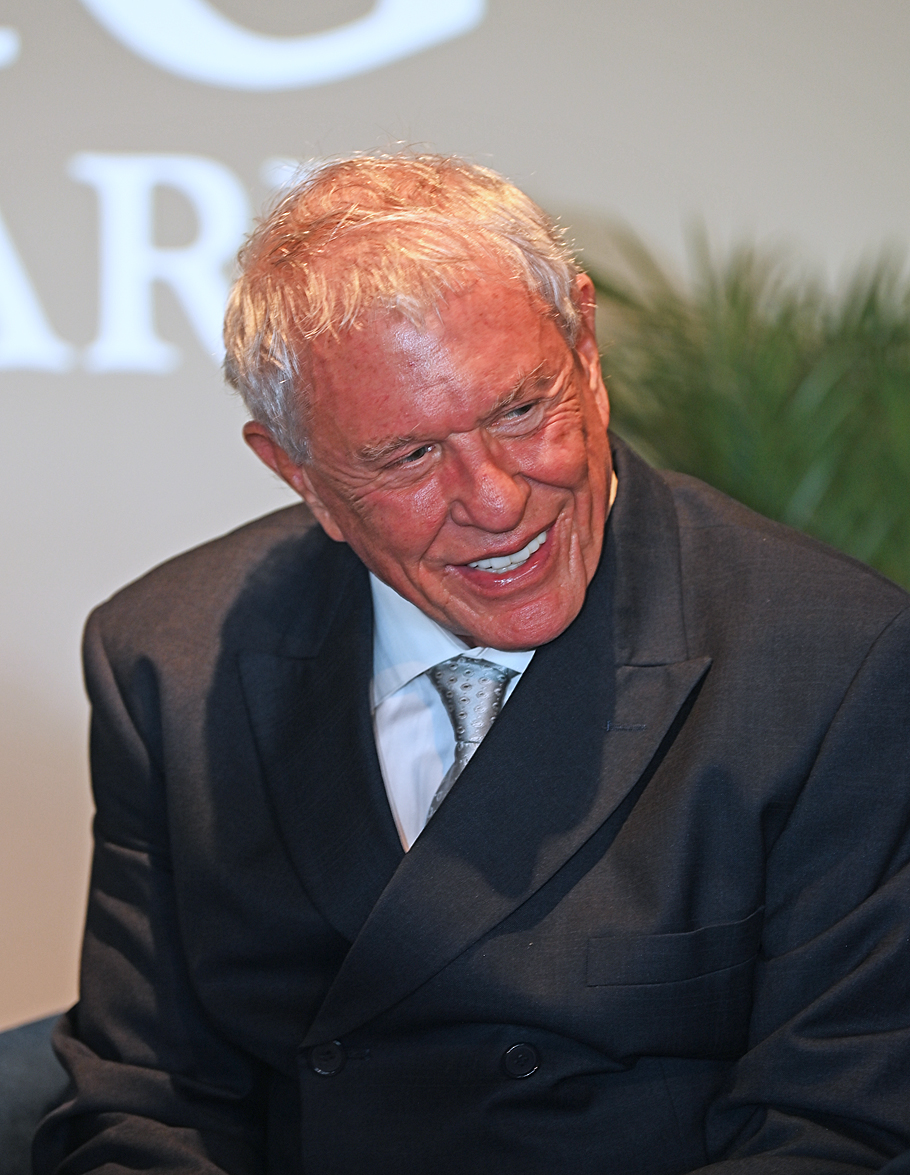
Actor Tom Berenger played the part of Confederate General James Longstreet in the 1993 movie, Gettysburg. (Press Pros Feature Photos)
Stepping away from area sports for a couple of days, I was privileged to observe a couple of entertainment icons share their passion for America, its history, and their concern that future generations won’t take the time to remember.
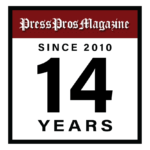 It was worth driving a thousand, seventy five miles…there and back in a span of 48 hours.
It was worth driving a thousand, seventy five miles…there and back in a span of 48 hours.
The weather in eastern Pennsylvania was beautiful for a day, and drippy for another. But weather I can get anywhere. What I went for was something good for the soul.
 While I was gone to Gettysburg this past weekend I received a couple of emails from regular readers questioning how I could not cover the Versailles-Coldwater game on Friday night, in deference to a ‘dog and pony show’ about the Civil War – American History – where everyone knows how that story ends.
While I was gone to Gettysburg this past weekend I received a couple of emails from regular readers questioning how I could not cover the Versailles-Coldwater game on Friday night, in deference to a ‘dog and pony show’ about the Civil War – American History – where everyone knows how that story ends.
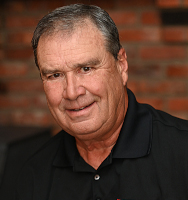
Editor/publisher Sonny Fulks writes OHSAA sports and Big Ten baseball for Press Pros Magazine.
Well, for accuracy, we did see Versailles and Coldwater play, and wrote about how that story ended, as well.
But the 30th anniversary reunion of those engaged with the making of the movie Gettysburg (1993) had been on my calendar for more than a year. And as a member of the Gettysburg Magazine editorial staff (University of Nebraska Press), it was something of another, different priority that could not be ignored, or done by proxy. In the end, a thousand miles notwithstanding, glorious weather, old friends, and some elbow rubbing elbows with old-school movie stars…I was glad I took the time to go.
I’ll be truthful, one of the emails I received was hardly a jab, or even friendly, coming from a regular antagonist who writes every time I mention the Civil War, or my frequent trips to the battlefields over the years. This person is clearly from the ‘progressive’ wing of modern culture and politics, and often refers to my tribute to the soldiers of that great conflict as barbarians, bigots, and people without regard to the suffering of humanity. This kind of rhetoric brings to my mind two great ironies.
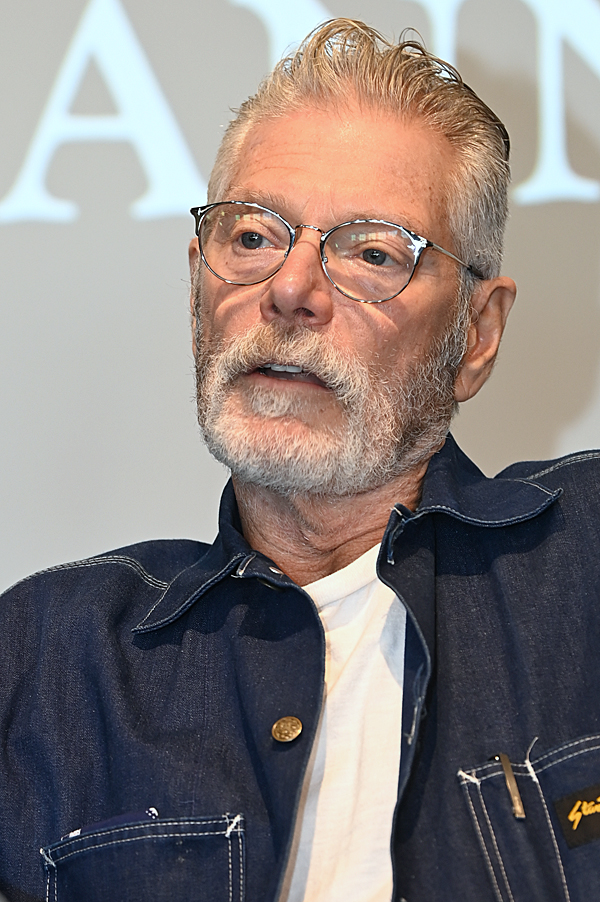
Actor Stephen Lang talks about his role of General George Pickett during last weekend’s reunion celebration of the film, Gettysburg.
One, that people who decry those who fought to preserve the American union in the Civil War for its barbarism…appear to be only too comfortable with support, or indifference, for those perpetrating such, and worse, suffering on the nation of Israel, presently.
And two, throughout the history of mankind there appears to be an ultra-fine line between humanity and sheer barbarism, especially when it suits the desire and narrative of the perpetrators. That’s just one man’s observation, but we, you and I, still have that right. And I doubt that you’ll read it…any…where…else!
I was so taken with the words of actor Tom Berenger, who played Confederate General James Longstreet in the movie, Gettysburg, when he talked about the film never having a chance to be a financial success. I’m paraphrasing here for the sake of brevity, but Berenger, who starred in The Big Chill, Major League, Someone To Watch Over Me, and other box office money makers, was very clear in his explanation that movies such as Gettysburg, that touched on modern cultural land mines such as racism and the institution of slavery in the 19th century, was a work out of obligation to history, and the millions who died to finance that history, good and bad.
“I told Ron Maxwell (the film’s screen writer and directory) that this is our history. We have to to do this,” said Berenger.
In Berenger’s view…we cannot pretend that it didn’t happen, or that it didn’t affect how Americans would think about each other a hundred years later.
“The Civil War was a turning point in America, and Gettysburg was a turning point in the Civil War,” he added.
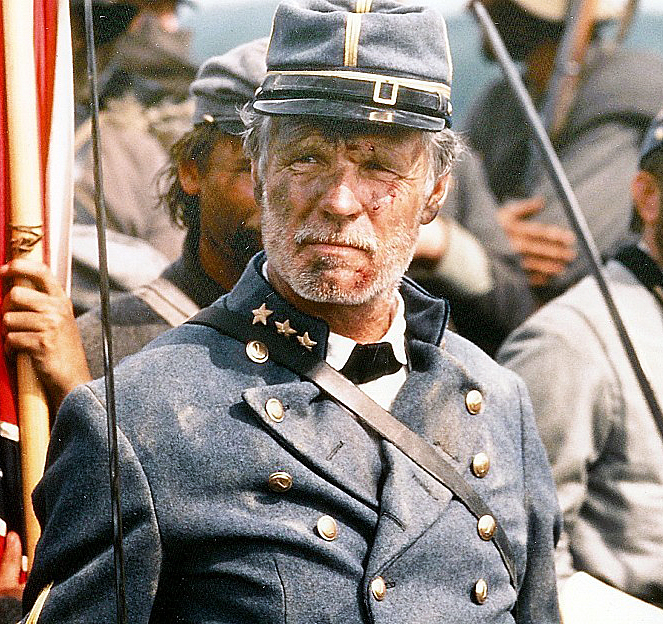
Media mogul Ted Turner was heavily involved with the film’s production and financing…and played the part of Gen. George S. Patton’s uncle, shot at Gettysburg. (Courtesy of Gettysburg National Military Park)
Ron Maxwell talked about the significant part that former Atlanta Braves owner, and media mogul Ted Turner had in both the production, and the financing of the film.
“Ted was about to come out of his skin in anticipation of making this film,” smiled Maxwell. “He actually said, ‘I’ve always dreamed about dying during Pickett’s charge. I do even now. And as it turns out there was a Confederate colonel who was killed during the charge that was the great, great uncle to General George S. Patton, from World War II. So we found the right uniform, everything authentic, for Colonel Patton.
“So we come up to the day of Ted’s scene and the night before we had dinner. I explained to Ted that there were two way we could do the shot…explaining the variables between doing it on budget, and expanding the scene to having more people, more dramatic effect, and a bigger impact. Of course Ted said, ‘I want to do it the big way.’ One shot in the middle of 50 different set-ups during a full day’s work.

Dorsten Contracting proudly supports your favorite activities and sports stories on Press Pros Magazine.
“And when we come to that shot Ted delivers his line perfectly – ‘Let’s go boys, give ’em the cold steel,’ – he’s shot in the chest, and falls. Except, he was slow in grabbing his chest where the planted blood squibs went off under his uniform, simulating the wounds.
“So we had to go back, take about 45 minutes to reset all the re-enactors, the guns, the fence rails – everything – and do the scene again. This time…Ted got it, perfectly on time. And I’m thinking…CUT. I think we got that. WE GOT IT! Of course Ted comes over immediately and says, ‘How’d I do?’
“And I said to him, ‘Ted, we nailed it.'”
“And Ted says, of course…’Just call me two-take Ted.'”
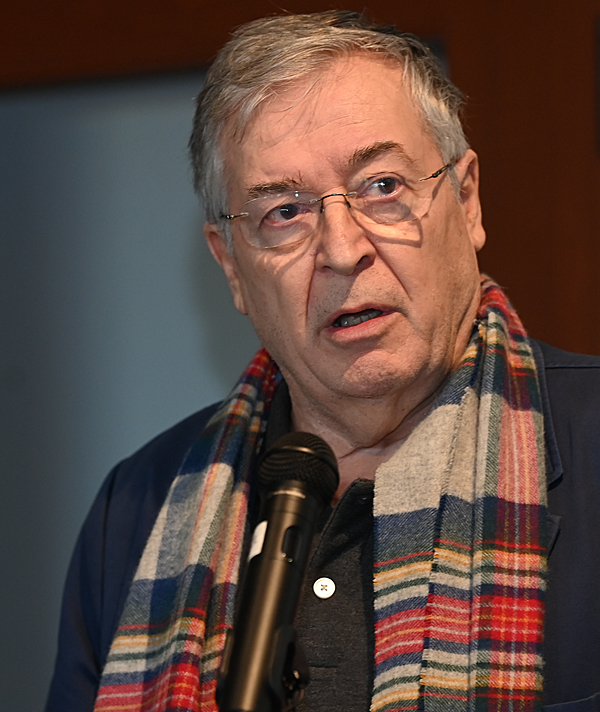
“We had to get the battle scenes right…but we also had to get the soulfulness of the generation who had to endure the tragedy or the American Civil War, as well.” – Director Ron Maxwell
Now I hope people are still reading this, because over the past twenty five years, after the original financial failings of the film, the next two decades have been kind to the movie due to its availability on streaming services like NetFlix, ITunes, Amazon, and Google Play. More than 23 million viewers have tuned in to watch it since it’s television debut.
As film critic Roger Ebert would write: “Gettysburg is known for its accuracy and love for history. As a war epic, it’s been somewhat outgrown by the film industry, but for the fact of its action scenes, “Gettysburg“ avoids all of those war movie cliches. This is a film, pure and simple, about the Battle of Gettysburg.”
It’s a beautiful film!
“We had to get the battle scenes right, the costumes, the uniforms, and the period right, yes,” said Maxwell. “But we also had to get the soulfulness of the generation who had to endure the tragedy of the American Civil War, as well.”
And for that fact alone, it still resonates with those who’ve literally worn out VHS copies of the film, and make annual pilgrammages to the battlefield to walk in the steps of not only the original actors from 1863, but in the steps of Tom Berenger (Longstreet), Jeff Daniels (Chamberlain), and Stephen Lang (Pickett), one hundred thirty years later.
And if anyone cares to stand where Ted Turner fell in 1992, playing the part of Colonel Waller Tazewell Patton of the 7th Virginia Infantry, look me up sometime and I can tell you.
Better yet, meet me at Gettysburg…and I will show you!
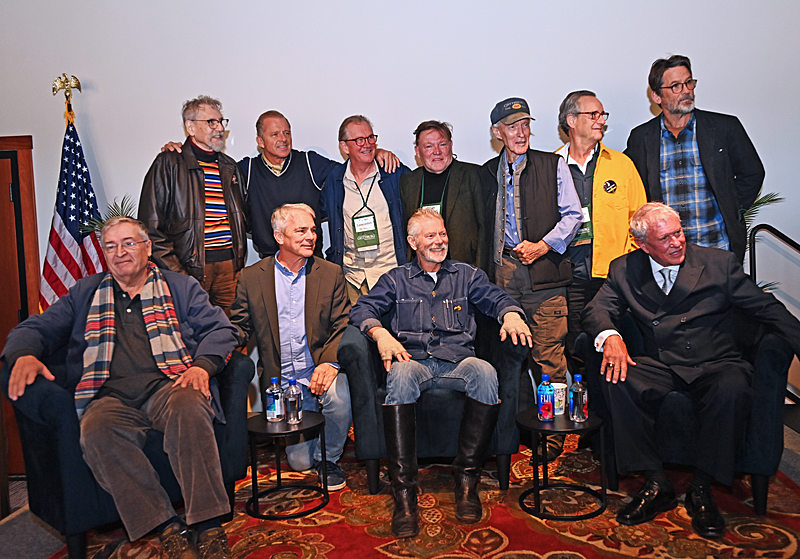
The actors…too numerous to name, came back to Gettysburg to remember and celebrate their tribute to history.

Park National Bank proudly sponsor high school and college sports on Press Pros.
